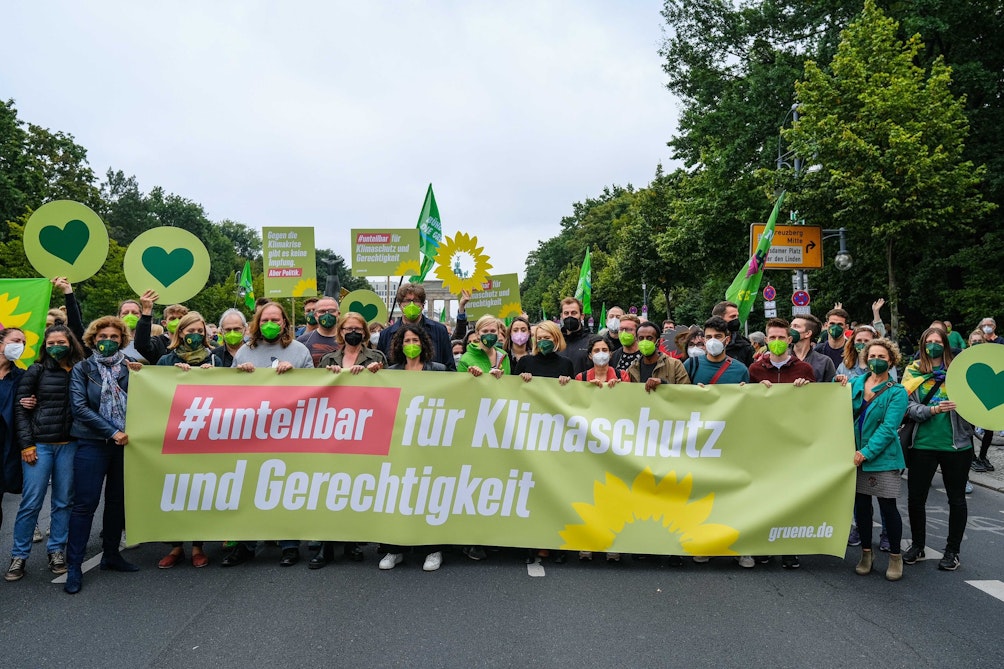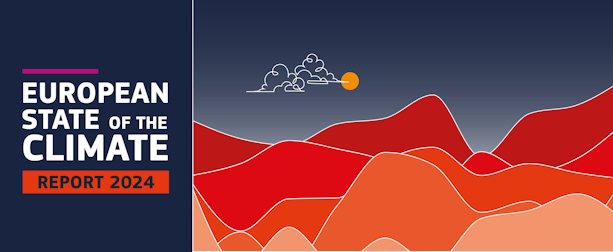The German elections will have huge implications for Germany and Europe, as well as on climate leadership in the EU. In less than a week, Germany will elect its last government capable of still mitigating the climate crisis.
Climate change is already affecting every inhabited region across the globe
According to the latest IPCC report, all inhabited regions are already impacted by climate change and it is now very likely that global temperatures will exceed 1.5°C by 2030. The report also notes that climate change is happening at a faster rate than anticipated.
Most importantly, it highlights more than ever the correlation between human activities and the warming climate, stating that "human activities [now] affect all the major climate system components." The consequences of these climatic changes include heatwaves, more intense and frequent heavy precipitation, changes in the frequency of droughts, the loss of permafrost, as well as more unprecedented extreme weather events.
The United Nations (UN) has already signalled that the report is a 'code red for humanity', with António Guterres, the Secretary-General of the UN, noting that 'we are on the edge of the abyss'. The analysis by the IPCC shows that emissions would currently rise by 16% by 2030. As Annalena Baerbock stated in the latest debate, "with the current political decisions by the [German] government, we are heading towards a 2.7°C warming."
Over the past year, we have experienced some of the harshest impacts of the climate crisis in Europe yet – from severe floods in Germany, Belgium and France as well as Spain, to raging fires in Greece, Spain and Italy. In the next decade, we can already expect further loss of artic ice and sea level rise, and an increase in global surface temperature as well as more extreme weather events and natural disasters.
According to the climate clock, we have less than 8 years to achieve net zero emissions under a global carbon budget in line with staying below 1.5°C or even 2°C of global warming. Beyond this point, climate chaos will become disastrous. The next government is pivotal in ensuring that we are on the path to sufficiently reducing emissions to avoid such an outcome.
Climate-friendly prosperity as the basis for a future worth living
Germany needs a climate government, and a climate government can only be obtained by voting Green. Annalena Baerbock sees the crisis as an opportunity to shape a more green and just future in Germany and beyond: "It's a chance for us—not just in Germany but worldwide—to pull the lever that changes the train tracks and sets us on a different course."
In an independent report by the German Institute for Economic Research on parties in the Bundestag, only the Greens have a reasonably credible program on how to contribute to the success of the Paris Agreement and get Germany to climate neutrality.
Klimakrise ist jetzt. Hören wir auf, nur zu reden. Machen wir. Dafür am 26. September GRÜN wählen. pic.twitter.com/vKtwb1KpwE
— Annalena Baerbock (@ABaerbock) September 10, 2021
The German Greens (Bündnis 90/Die Grünen) are focusing on ensuring 'climate-friendly prosperity as the basis for a future worth living'. Their immediate climate protection programme would put Germany on the path to respecting the 1.5°C goal. Rather than the previous politics of short-termism, they are also prepared to invest in the future. Their manifesto includes plans to:
Implement ambitious guidelines for CO2 reduction targets
Enhance support for research and innovation for climate-friendly economic activity
Accelerate the exit from coal and end extraction of fossil fuels
Massively expand renewable energy
Ensure sustainable mobility
Phase-out combustion engines by 2030
Commit 5% of German forests back to nature
Increase the share of organic farming to 30% by 2030
Compensate low earners for the costs of increased energy prices
Reduce the sustainable energy surcharge
Introduce a 'climate bonus'
Invest €50 billion annually in the socio-ecological transformation of the country to create new green jobs
Implement a fair income and fair working conditions for farmers
Tinne Van der Straeten, the Minister of Energy from Groen in Belgium, is one of the Green leaders keeping a close eye on the German elections from Belgium. In a recent interview, she stated that "A green minister, an additional green colleague in the Energy Council, would heavily and positively impact the debates we are having about climate policy."
Repairing the damage of the floods in Germany and ensuring that we invest in resilient societies whilst we tackle the climate crisis and pandemic is the task of the next government. We can no longer postpone action if we are to ensure a just and sustainable future for all. That's why Annalena Baerbock is highlighting the climate stakes of this election: "We need the courage and the trust to renew this country and make it climate neutral."
The next decade is crucial for climate action. The German Greens are the climate government we need to tackle this crisis and implement a Green Recovery in Europe that will lead us towards more just, prosperous, and resilient societies.
Ahead of COP26, the European Greens is holding the European Ideas Lab in Milan and online on 30 September-2 October, which will focus on climate and biodiversity. Join us by registering today.
We will also be in Germany on the day of the Global Climate Strike! Follow us on our Twitter to see the latest climate news.


